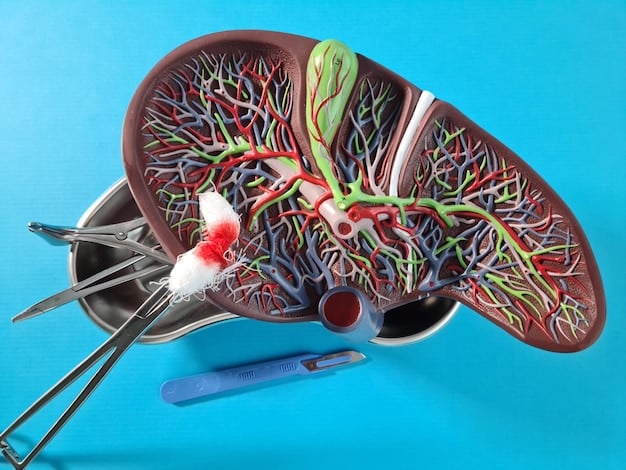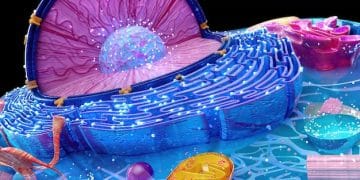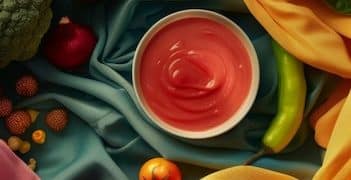Detox Diets: Safe or Scam? An Expert’s Insight

Many popular detox diets claim to cleanse the body of toxins and promote rapid weight loss, but scientific evidence overwhelmingly indicates that these diets are often ineffective, potentially harmful, and lack foundational support from medical and nutritional experts, whose insights weigh heavily against their widespread adoption.
In a world brimming with health trends and quick fixes, the allure of a “detox” diet often proves irresistible. Promising a swift cleanse, renewed energy, and rapid weight loss, these regimens capture significant attention. However, when examining The Truth About Detox Diets: Are They Safe and Effective? An Expert Weighs In, a more nuanced picture emerges, compelling us to question the scientific basis and potential pitfalls of such practices.
Understanding the Detox Diet Phenomenon
Many individuals turn to detox diets in hopes of flushing out toxins, kickstarting weight loss, or simply feeling healthier. These plans vary widely, some advocating for juice fasts, others for restrictive food intake, and some incorporating supplements, herbs, or colon cleanses. The common thread is the promise of purification and rejuvenation.
What Defines a Detox Diet?
A detox diet typically involves a period of fasting, followed by a strict diet of fruits, vegetables, fruit juices, and water. Some detoxes also include specific supplements, herbs, laxatives, diuretics, or even colon hydrotherapy. The underlying theory is that these practices help the body eliminate accumulated toxins, which are believed to cause various health issues, from fatigue to chronic diseases.
The concept of “toxins” in the context of these diets is often vague. While our bodies certainly produce and are exposed to harmful substances, the precise nature of the “toxins” targeted by detox diets is rarely specified. This lack of specificity makes it difficult to assess their purported mechanisms of action.
- Juice Cleanses: Involve consuming only fruit and vegetable juices for a set period, from a few days to several weeks.
- Specific Food Restrictions: Eliminate processed foods, meat, dairy, gluten, and sometimes even caffeine and sugar.
- Herbal Supplements: Often include proprietary blends promising enhanced detoxification, liver support, or digestive cleansing.
- Colon Hydrotherapy: Administering water or other substances into the colon to flush out waste, assumed to contain toxins.
Proponents often highlight anecdotal evidence, citing feelings of increased energy, clearer skin, and weight loss. However, these benefits are frequently attributed to the sudden shift away from processed foods, reduced calorie intake, or simply the psychological effect of engaging in a health-focused ritual, rather than any genuine detoxification.
The Human Body’s Natural Detoxification System
The human body possesses a remarkably efficient and complex system for neutralizing and eliminating toxins. Organs like the liver, kidneys, lungs, intestines, and skin work tirelessly to ensure harmful substances are processed and expelled. This intrinsic detoxification process is a testament to the body’s self-regulating capabilities.
How Our Bodies Handle Toxins
The liver, often considered the body’s primary detox organ, converts harmful substances into benign ones, which are then excreted through bile or urine. The kidneys filter blood, removing waste products and excess water. The lungs expel gaseous waste, and the intestines manage the elimination of solid waste, also absorbing nutrients. The skin aids in toxin release through sweat.
This intricate network operates continuously, adapting to the level of toxic exposure and physiological demands. It doesn’t require external intervention in the form of specialized diets or supplements to function optimally under normal circumstances. Providing the body with a balanced diet, adequate hydration, and sufficient rest supports these natural processes without the need for extreme measures.
Many of the “toxins” that detox diets claim to remove are not clearly defined or are substances that the body naturally handles without issue. The idea that common dietary components or environmental exposures accumulate to a harmful degree without the body’s ability to cope is largely unfounded in medical science.

Expert Perspectives: What Science Says
When delving into the scientific literature, there’s a striking lack of peer-reviewed evidence supporting the safety or efficacy of detox diets. Medical and nutritional professionals largely agree that the body’s own systems are highly effective at detoxifying themselves, rendering most commercial detox products and regimens unnecessary and potentially dangerous.
Lack of Scientific Evidence
The primary concern among experts is the absence of rigorous, scientific studies to substantiate the claims made by detox diet advocates. Most purported benefits are anecdotal, and the notion of “toxins” is often loosely defined, making any measurable assessment difficult. Real scientific research focuses on specific compounds and their measured physiological effects.
According to organizations like the British Dietetic Association (BDA) and the National Institutes of Health (NIH), there is no compelling scientific evidence to suggest that detox diets work or that they are necessary. The vast majority of studies are small, poorly designed, or funded by companies that profit from detox-related products, leading to biased results.
- No Defined “Toxins”: The specific toxins that these diets claim to remove are rarely identified, making it impossible to measure their alleged expulsion.
- Unproven Mechanisms: The proposed mechanisms by which detox diets work are not scientifically substantiated; they often contradict known physiological processes.
- Reliance on Anecdotes: Much of the “evidence” for detox diets comes from personal testimonials, which are not reliable indicators of efficacy or safety.
Experts emphasize that true detoxification happens continuously within the body. A truly “toxic” state, like poisoning, requires immediate medical intervention, not dietary changes. The regular function of the liver, kidneys, and other organs is sufficient for healthy individuals to process and eliminate waste products.
Potential Risks and Side Effects
Despite their alluring promises, detox diets carry various risks and side effects that can range from mild discomfort to severe health complications. These risks are especially pronounced for individuals with pre-existing medical conditions or those undertaking extreme forms of detoxification.
Common Side Effects
Many detox diets involve severe calorie restriction or the elimination of entire food groups, leading to immediate side effects such as fatigue, dizziness, headaches, and irritability. These symptoms are often attributed to “toxin withdrawal” by proponents, but are more likely a result of insufficient nutrient intake and low blood sugar.
Dehydration is another common risk, especially with diuretic-heavy detoxes or those involving colon cleansing. Electrolyte imbalances, which can affect heart function and muscle control, are also a serious concern. The drastic reduction in fiber intake in some juice cleanses can lead to constipation, while others might cause diarrhea due to laxatives.
- Nutrient Deficiencies: Restrictive diets can lead to inadequate intake of essential vitamins, minerals, and macronutrients over time.
- Electrolyte Imbalance: Can cause cardiac arrhythmias, muscle weakness, and seizures, especially dangerous for those with heart conditions.
- Digestive Issues: Diarrhea, constipation, and disruption of the gut microbiome are common, potentially leading to long-term digestive problems.
- Interaction with Medications: Certain herbs or supplements often found in detox products can negatively interact with prescription medications, reducing their effectiveness or increasing side effects.
For individuals with conditions like diabetes, kidney disease, or eating disorders, detox diets can be particularly hazardous. For pregnant or breastfeeding women, or those on certain medications, these diets are strongly discouraged due to the potential harm to both mother and child or interference with treatment.

The Psychological Allure of Detox Diets
Beyond the physiological claims, detox diets often tap into a powerful psychological need for control, purity, and a fresh start. This strong emotional appeal can sometimes overshadow the lack of scientific evidence, making them particularly attractive in a culture obsessed with health and wellness.
The Promise of a Reset
Many people feel overwhelmed by unhealthy habits, environmental pollutants, or the general stresses of modern life. A detox diet can offer the appealing idea of a “reset button” – a short, intense period of purification that promises to cleanse not just the body, but also the mind, offering a sense of renewal and a clean slate.
This feeling of control and accomplishment can be very motivating, even if the actual physical benefits are minimal or non-existent. The strict rules of a detox diet might make it easier for some individuals to adhere to, contrasting with the often-complex and long-term advice for sustainable healthy living.
Moreover, the marketing around detox diets often leverages anxiety about “toxins” in food and the environment, creating a fear-based narrative. This can lead individuals to believe that their bodies are constantly under attack and need drastic measures to maintain health, playing into a desire to “fix” perceived imperfections or prevent future ailments, whether real or imagined.
Sustainable Alternatives to Detox Diets
Instead of relying on unproven and potentially harmful detox diets, a sustainable approach to health and well-being focuses on consistent, evidence-based practices that support the body’s natural detoxification systems. These methods are not only safer but also lead to lasting health benefits.
Embracing a Holistic Approach
A balanced diet rich in whole foods, regular physical activity, adequate hydration, sufficient sleep, and stress management are the cornerstones of optimal health. These lifestyle choices naturally support the organs responsible for detoxification, allowing them to function effectively without the need for extreme measures.
Focusing on consuming a variety of fruits, vegetables, whole grains, lean proteins, and healthy fats provides the body with the essential nutrients needed for all bodily functions, including detoxification. Avoiding highly processed foods, excessive sugar, and unhealthy fats also reduces the burden on the liver and kidneys.
- Balanced Nutrition: Prioritize whole, unprocessed foods. Emphasize fruits, vegetables, and fiber-rich foods.
- Adequate Hydration: Drink plenty of water throughout the day to support kidney function and nutrient transport.
- Regular Exercise: Promotes circulation, helps the body excrete waste through sweat, and boosts overall metabolic health.
- Quality Sleep: Allows the body to repair and regenerate, crucial for cellular health and organ function.
- Stress Management: Chronic stress can negatively impact all bodily systems, including detoxification. Techniques like meditation or yoga can help.
If you have specific health concerns or believe you are experiencing symptoms related to toxin exposure, the most responsible course of action is to consult with a qualified healthcare professional. They can provide an accurate diagnosis and recommend evidence-based treatments, rather than relying on unproven and potentially risky fad diets.
| Key Point | Brief Description |
|---|---|
| 🔬 Lack of Evidence | Scientific studies do not support the efficacy or necessity of detox diets. |
| 👤 Body’s Natural Systems | Liver, kidneys, lungs, intestines effectively detoxify the body on their own. |
| ⚠️ Potential Risks | Side effects range from fatigue and headaches to nutrient deficiencies and organ strain. |
| 🥗 Sustainable Alternatives | Balanced diet, hydration, exercise, and sleep are superior for long-term health. |
Frequently Asked Questions About Detox Diets
▼
No, the vast majority of medical professionals and reputable health organizations do not recommend detox diets. They often lack scientific backing, can be harmful, and are unnecessary given the body’s natural detoxification systems. A balanced lifestyle is universally endorsed over restrictive detox regimens.
▼
You may experience initial weight loss, primarily due to fluid loss and caloric restriction. However, this weight loss is typically not sustainable and is often regained once regular eating resumes. True, lasting weight management comes from consistent, healthy dietary habits and regular physical activity, not short-term detoxes.
▼
The term “toxins” in the context of detox diets is often vague and not scientifically defined. While our bodies encounter various harmful substances, the specific “toxins” targeted by detox diets are rarely identified, making it impossible to verify if they are actually being removed or if the claims hold any medical truth.
▼
Absolutely. Your body is naturally equipped to detoxify itself. You can support this process by maintaining a healthy lifestyle, including a balanced diet rich in fruits and vegetables, adequate hydration, regular exercise, sufficient sleep, and managing stress. These practices allow your organs to function optimally.
▼
Individuals with pre-existing medical conditions like diabetes, kidney disease, heart conditions, or eating disorders should strictly avoid detox diets. Pregnant or breastfeeding women, children, and the elderly should also steer clear. Anyone taking prescription medications should consult their doctor before considering any restrictive diet.
Conclusion
The persistent popularity of detox diets underscores a pervasive desire for quick health solutions in a complex world. While the appeal of a “cleanse” is understandable, scrutinizing the evidence reveals a stark reality: these diets largely operate on unsubstantiated claims, lacking the scientific rigor necessary to prove their safety or efficacy. The human body is a marvel of biological engineering, equipped with sophisticated systems – primarily the liver and kidneys – that meticulously filter and eliminate waste products without the need for external, often restrictive, interventions. Rather than seeking a fleeting fix, a more sustainable and scientifically sound path to health lies in embracing a consistent lifestyle of balanced nutrition, adequate hydration, regular physical activity, quality sleep, and effective stress management. These foundational habits empower our bodies’ natural detoxification processes, fostering genuine, long-term well-being instead of relying on the unproven promises of detox fads.





